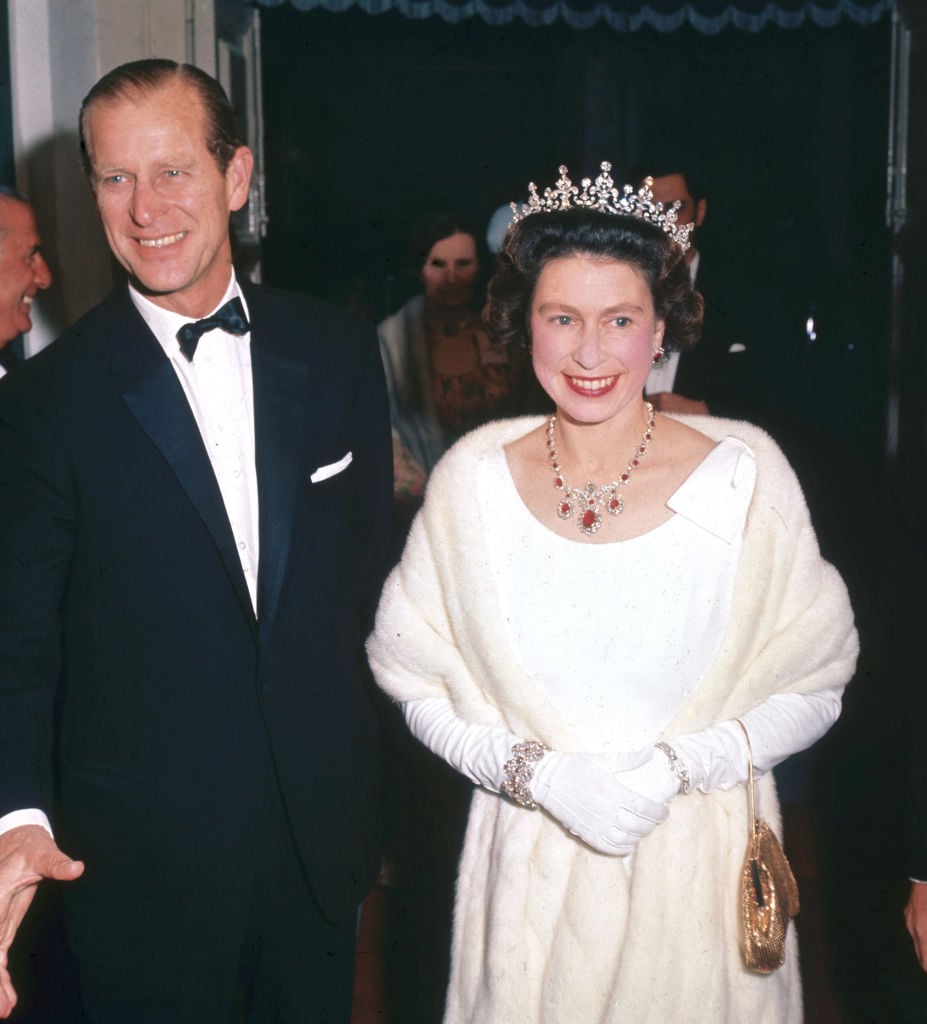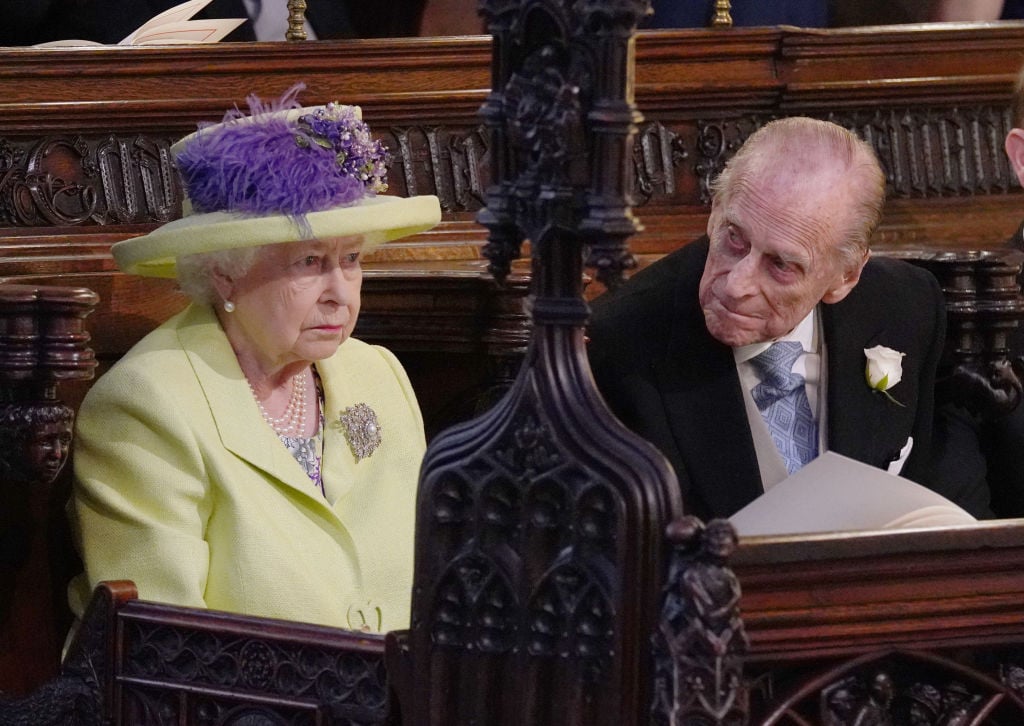Did Phillip Cheat On Elizabeth? Unveiling The Truth Behind The Royal Rumors
For decades, the relationship between Prince Philip and Queen Elizabeth has fascinated people worldwide. As one of the most enduring royal marriages in history, their union has been the subject of speculation, admiration, and curiosity. Did Phillip cheat on Elizabeth? This question has lingered in the minds of royal enthusiasts for years, fueled by gossip and media reports. In this article, we will explore the facts, rumors, and evidence surrounding their marriage.
While the couple celebrated over seven decades of marriage, the public's fascination with their relationship has often led to rumors about infidelity. However, separating fact from fiction requires a deeper understanding of their lives, values, and the context of their marriage. In this article, we aim to provide a balanced and well-researched perspective on the matter.
This discussion will delve into historical records, expert opinions, and credible sources to answer the question: Did Phillip cheat on Elizabeth? By examining their relationship dynamics, cultural norms, and personal commitments, we hope to shed light on this enduring mystery.
Read also:How Did Jane Mansfield Die Unveiling The Truth Behind The Iconic Stars Tragic End
Table of Contents
- Biography of Prince Philip and Queen Elizabeth
- Details of Their Marriage
- Origins of the Rumors
- Royal Standards and Expectations
- Public Reactions to the Rumors
- Expert Views on the Matter
- Historical Context of Royal Marriages
- The Role of Media in Shaping Perceptions
- Analysis of Available Evidence
- Conclusion: Did Phillip Cheat on Elizabeth?
Biography of Prince Philip and Queen Elizabeth
Before diving into the question of whether Prince Philip cheated on Queen Elizabeth, it is essential to understand the backgrounds of these two iconic figures. Below is a brief overview of their lives:
Prince Philip's Early Life
Prince Philip was born on June 10, 1921, on the Greek island of Corfu. He was the only son of Prince Andrew of Greece and Denmark and Princess Alice of Battenberg. His early life was marked by significant challenges, including the exile of his family from Greece when he was just an infant. Philip's education took him across Europe, eventually leading to the prestigious Gordonstoun School in Scotland.
Queen Elizabeth's Early Life
Queen Elizabeth II was born on April 21, 1926, in London. As the first child of the Duke and Duchess of York, she was not initially expected to become queen. However, the abdication of her uncle, King Edward VIII, thrust her father, King George VI, onto the throne, making Elizabeth the heir presumptive. Her early life was shaped by royal duties and a sense of duty to the crown.
Biographical Comparison
| Attribute | Prince Philip | Queen Elizabeth II |
|---|---|---|
| Full Name | Prince Philip of Greece and Denmark | Elizabeth Alexandra Mary |
| Date of Birth | June 10, 1921 | April 21, 1926 |
| Place of Birth | Corfu, Greece | London, England |
| Marriage Date | November 20, 1947 | November 20, 1947 |
Details of Their Marriage
The marriage between Prince Philip and Queen Elizabeth II took place on November 20, 1947, at Westminster Abbey. Their union was widely celebrated as a symbol of post-war unity and hope. Over the years, they faced numerous challenges, including public scrutiny and the pressures of royal life. Despite these challenges, their marriage remained a cornerstone of the British monarchy.
Key Moments in Their Marriage
- 1947: Marriage ceremony at Westminster Abbey
- 1952: Elizabeth ascends the throne after the death of her father
- 1997: Celebration of their Golden Wedding Anniversary
- 2017: Celebration of their Platinum Wedding Anniversary
Origins of the Rumors
Rumors about Prince Philip's alleged infidelity have circulated for decades. These speculations often stem from his well-documented charm and sociability, as well as the cultural norms of the time. During the mid-20th century, royal marriages were often subject to scrutiny, and rumors spread quickly through word of mouth and tabloid journalism.
Factors Contributing to the Rumors
- Prince Philip's outgoing personality and frequent interactions with women
- The lack of transparency in royal affairs during the early years of their marriage
- Media sensationalism and the tendency to exaggerate stories for entertainment value
Royal Standards and Expectations
As members of the British royal family, both Prince Philip and Queen Elizabeth were held to high moral and ethical standards. Their roles required them to maintain a public image of integrity and devotion. While these expectations may have been challenging to meet, they served as a guiding principle for their behavior and decisions.
Read also:Tommy Davidson And Jennifer Lopez A Deep Dive Into Their Relationship And Impact
Expectations of Royal Marriages
- Lifelong commitment and fidelity
- Public representation of family values
- Adherence to traditional norms and customs
Public Reactions to the Rumors
The public's response to rumors about Prince Philip's fidelity has been mixed. While some view these stories as mere gossip, others take them seriously, questioning the integrity of the royal family. The media's role in amplifying these rumors has also contributed to public skepticism.
How the Public Perceives Royal Scandals
- Some view scandals as a humanizing aspect of royal life
- Others see them as a breach of trust and duty
- Public opinion often reflects cultural and generational values
Expert Views on the Matter
Historians and royal biographers have offered various perspectives on the question of whether Prince Philip cheated on Queen Elizabeth. While some believe the rumors lack substantial evidence, others suggest that the cultural context of the time may have influenced perceptions of fidelity.
Key Expert Opinions
- Historian A: "There is no concrete evidence to support the claim that Prince Philip was unfaithful."
- Biographer B: "The rumors likely stem from Philip's charismatic personality and the media's tendency to sensationalize stories."
- Psychologist C: "The pressures of royal life may have contributed to misunderstandings and misconceptions about their marriage."
Historical Context of Royal Marriages
To fully understand the dynamics of Prince Philip and Queen Elizabeth's marriage, it is important to consider the historical context of royal unions. Throughout history, royal marriages have often been shaped by political alliances, cultural norms, and societal expectations. The evolving nature of these relationships reflects broader changes in society.
Changes in Royal Marriage Dynamics
- Shift from arranged marriages to love-based unions
- Increased emphasis on personal happiness and fulfillment
- Greater transparency and accountability in modern times
The Role of Media in Shaping Perceptions
The media has played a significant role in shaping public perceptions of Prince Philip and Queen Elizabeth's marriage. Tabloids and sensationalist journalism often prioritize entertainment over accuracy, leading to the spread of rumors and misinformation. Understanding the media's influence is crucial in separating fact from fiction.
Media's Impact on Public Opinion
- Amplification of rumors through repetitive coverage
- Creation of narratives that appeal to public curiosity
- Occasional reliance on unverified sources and anecdotal evidence
Analysis of Available Evidence
After examining the available evidence, it becomes clear that there is no definitive proof to support the claim that Prince Philip cheated on Queen Elizabeth. While rumors persist, they lack credible sources and are often based on speculation rather than fact. The couple's enduring marriage and mutual respect suggest a strong commitment to one another.
Key Findings
- Lack of concrete evidence to support infidelity claims
- Strong public record of mutual support and partnership
- Historical context that emphasizes loyalty and fidelity
Conclusion: Did Phillip Cheat on Elizabeth?
In conclusion, the question of whether Prince Philip cheated on Queen Elizabeth remains unanswered due to a lack of credible evidence. While rumors have persisted over the years, they are largely based on speculation and media sensationalism. The enduring nature of their marriage, their mutual respect, and the historical context of royal relationships suggest a strong commitment to one another.
We invite readers to critically evaluate the information presented and consider the broader implications of these rumors. For those interested in learning more about this topic, we encourage you to explore additional resources and engage in thoughtful discussions. Share your thoughts in the comments section below, and don't forget to explore other articles on our site for more insights into royal history and culture.


